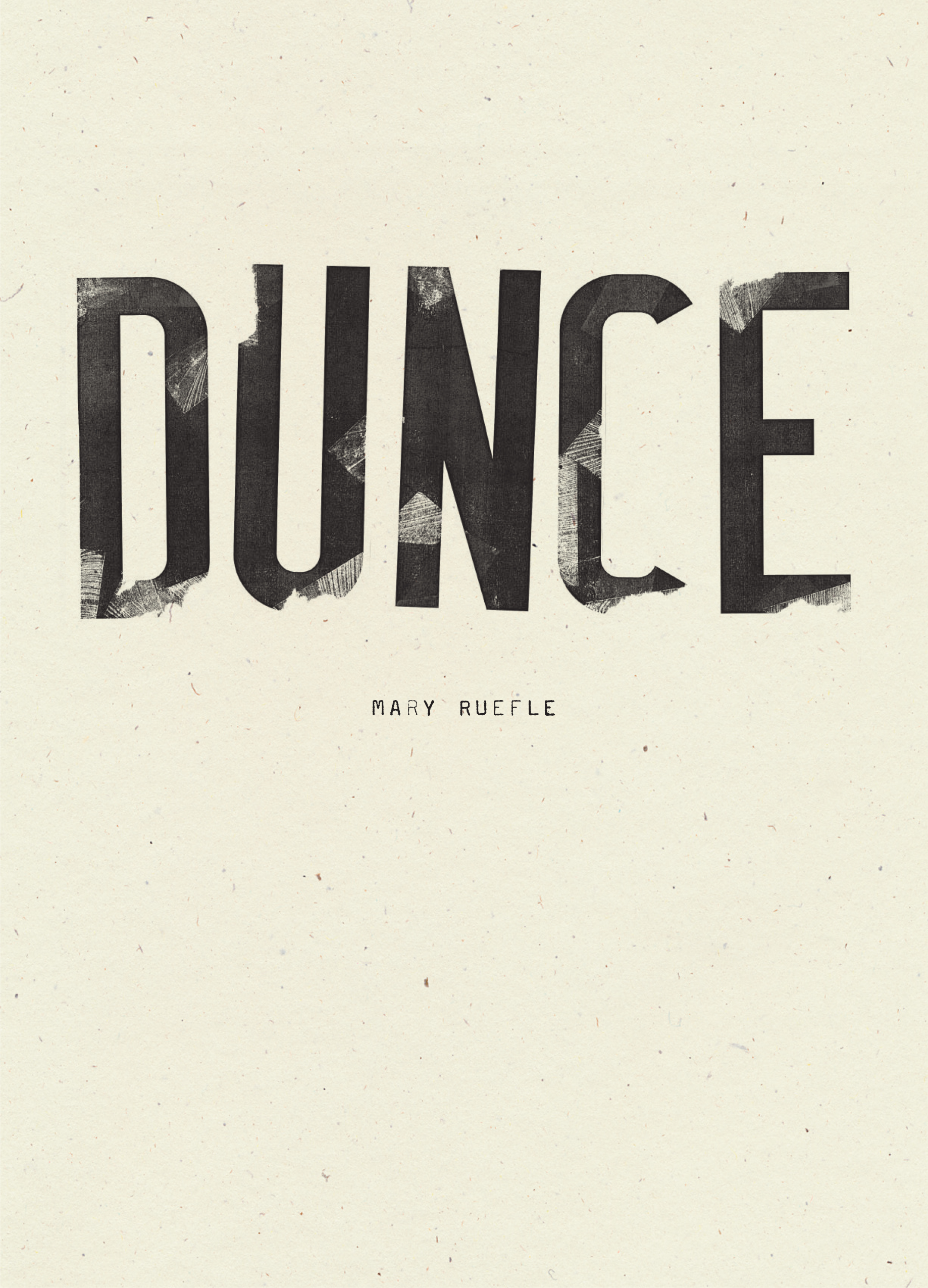Mary Ruefle’s book of poems, Dunce, like all of her books, is like no other. I carry around her book of prose, Madness, Rack, and Honey as if it were a Bible, handing it to anyone (writer or not) who will listen. Her poems are an extension of her prose, but both have a magical power of sheer lexical and intellectual delight and surprise.
The poem, “The Good Fortune of Material Existence,” begins: “Without bringing any more people/into the planning loop, I have decided/to have breakfast. I have made cautious/inquiries, and finally learned it is/Thursday.” Ruefle’s poems have the structure of jokes. Once Ruefle has our attention through humor and strategically planted aperçu and aphorism, she engages us with the language of the lyric: “Oh blank and hopeless days!/Oh long sleepless nights!/They are forgotten now/as I turn on the cold clear water of the stream./All the rivers of the world convene in me.” This beautiful writing gains power because of the change in tone from the previous lines.
So little contemporary poetry exhibits humor, but Ruefle isn’t afraid to wag her finger at convention. Even when she is writing about heavier subjects such as death (there’s a lot of death in this book), Ruefle can’t resist lightening the tone, as if humor isn’t merely a defense mechanism, but a way of survival, of living. “What a beautiful day for a wedding!” she writes in the poem, “A Morning Person,” immediately followed by: “It was raining when we buried my mum,/she loved lilacs and here they are,/the lilac lilacs like pendulous/large breasts dripping with dew….” Ruefle’s poems restore the magic of how a child’s unsullied mind might move and shift, unafraid and unsoiled by societal manners and postures.
We see how a mind might have a quick thought about a wedding that for some inexplicable reason reminds the speaker of her dead mother and the weather, then the mother’s favorite flower. A different kind of poet might follow that thread and needle through the fabric of deep emotion, but not Ruefle. She returns to her signature humor and play with language: “the lilac lilacs like pendulous/large breasts dripping with dew.” The diction and syntax of the line itself hangs like a dripping wet shirt so that when we say it, the words mimic in the most askew way, how heavy a mother’s death might be.
Ruefle makes her style of writing look easy. The easiest appearing writing is often the hardest to write. No one today is writing like Ruefle: her body of work in poetry and prose pricks like a needle that slightly catches the muscle—both painful and immensely delightfully awakening.
— Victoria Chang


 Dunce by Mary Ruefle (Wave Books)
Dunce by Mary Ruefle (Wave Books) 